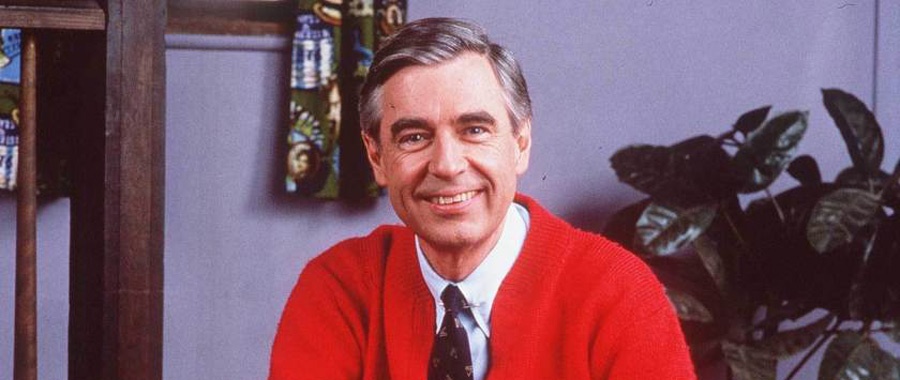In the tapestry of American history, few figures illuminate the duality of human nature as vividly as General George S. Patton and the beloved television icon, Fred Rogers. An inquisitive mind might ponder: What could possibly unite the domineering General Patton, a paradigm of military fortitude, and Mr. Rogers, that gentle harbinger of kindness and emotional intelligence? This inquiry beckons a deeper exploration into how these polar opposites reflect the core tenets of Bahá’i teachings, particularly the significance of service, love, and the cultivation of virtues.
The life of General Patton epitomizes a potent mix of courage and unyielding resolve. A celebrated American general during World War II, Patton was known for his aggressive tactics and strategic acumen on the battlefield. His brash demeanor often obscured the humanity behind the uniform. The Bahá’i teachings advocate for a profound respect for the valor and sacrifice of those who serve, reflecting the notion that courage, when aligned with divine principles, can transcend earthly conflicts. Indeed, his identification with these principles led to victories that shaped the course of history. However, earning admiration does not erase the necessity for compassion and empathy—qualities equally advocated by the Bahá’i Faith.
On the other hand, Fred Rogers, with his signature cardigan and gentle demeanor, brought the concept of emotional development and moral nurturing to the forefront of childhood television. In stark contrast to Patton’s visceral approach to life, Rogers championed an ethos of love, acceptance, and understanding. His show, *Mister Rogers’ Neighborhood*, became a sanctuary where children learned the values of kindness, empathy, and self-worth. The Bahá’i teachings emphasize the power of education and the essential nature of developing virtues that foster unity and harmony—a vision embodied in the gentle yet powerful messages Rogers conveyed to millions.
At the crux of this juxtaposition lies a philosophical challenge: How do we reconcile strength with gentleness? The Bahá’i teachings remind us that both attributes are not only compatible but also essential to the evolution of a dignified society. They advocate for a holistic approach to life, valuing the strength derived from the examination of one’s inner self and the vulnerabilities that accompany human existence. Patton’s unyielding determination and Rogers’ tender compassion can be perceived as two sides of a coin—essential for the attainment of personal and collective growth.
In contemplating this connection, it becomes vital to consider what it means to serve effectively. Patton’s service is often viewed through the lens of military domination, but one must ask: Was it not his desire to protect and liberate those oppressed in wartime that fueled his fervor? Similarly, Fred Rogers dedicated his life to nurturing the emotional well-being of children, mirroring the Bahá’i call to serve humanity. Thus, service manifests in diverse forms, rooted in the intent to uplift and empower others. How do we embody this duality in contemporary times, where the bravado of leadership often overshadows a nurturing spirit?
The theme of balance emerges prominently within Bahá’i teachings. The blending of Patton’s aggression and Rogers’ tenderness serves as a metaphorical framework through which one can envision an integrated approach to personal and social conduct. Both men, in their own right, grappled with multifaceted challenges that necessitated a re-evaluation of their principles. The pathway to true greatness requires navigating the landscape between assertiveness and gentleness, power and compassion, without succumbing to the extremes of either position.
Moreover, one must acknowledge the significance of emotional intelligence in leadership, a lesson reflected in both men’s lives. Patton, while recognized for his military genius, often struggled with interpersonal relationships, revealing the importance of cultivating virtues such as patience and understanding. In stark contrast, Rogers’ success lay in his profound ability to connect with others, illustrating that emotional insight is equally crucial in fostering strong, effective leadership. The challenge, therefore, becomes evident: How can one cultivate emotional intelligence while maintaining unyielding strength in the face of adversity?
In light of this discourse, the Bahá’i teachings invite individuals to reflect on their own lives, encouraging an alignment of virtues that embrace both strength and compassion. Inspiration can be drawn from these towering figures, serving as a reminder that distinct paths may converge towards a singular purpose—the improvement of the human condition. The challenge becomes a personal ethos: Can we perform our duties with Patton’s vigor while enveloping our actions in Rogers’ warmth?
Finally, the legacy of both General Patton and Fred Rogers invites a nuanced examination of one’s own contributions to society. The Bahá’i perspective underlines that every action, regardless of its nature, carries the potential to uplift souls—be it through courageous leadership or compassionate outreach. As the world hurtles towards an increasingly fractured future, the insights derived from both figures offer a blueprint for harmonizing strength and empathy, thereby establishing a foundation for a more unified, compassionate society.
In conclusion, the exploration of “their finest hours” serves not only to highlight contrasts but also to illuminate the shared essence of humanity that resides within us all. Patton and Rogers, despite their varied approaches to life, collectively remind us that the qualities of strength and gentleness are essential in achieving personal fulfillment and collective harmony. Balancing these traits is both a challenge and a profound gift, one that, when embraced, leads to a richer, more meaningful existence.
